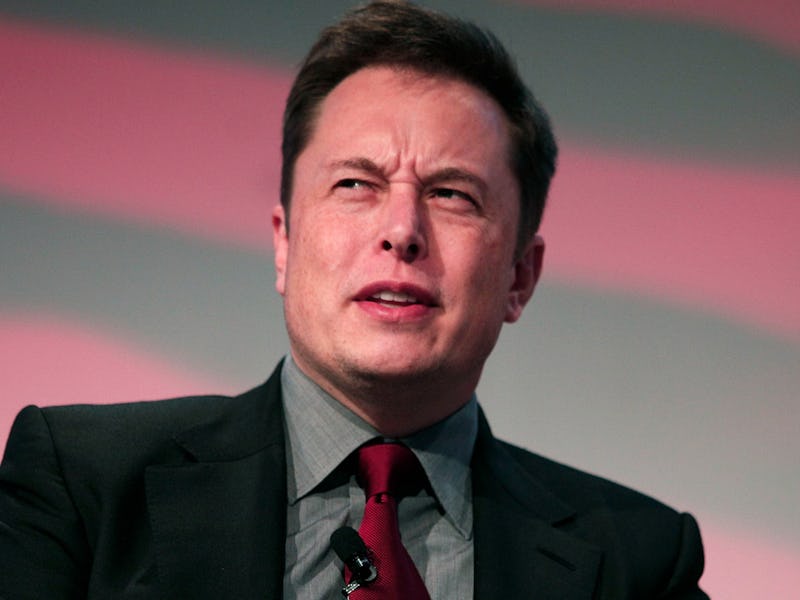Elon Musk likes money. He has a lot of it! But he isn’t making much of it off his rockets, the SpaceX founder wrote in a fiery tweet. An aerospace professor tells Inverse he’s probably telling the truth.
On Tuesday, former NASA Deputy Administrator Lori Garver tweeted a photo of two books — The Space Barons by Christian Davenport and Rocket Billionaires by Tim Fernholz — along with a message about her “favorite Garver quote.” It’s unclear whether or not she was quoting herself in an excerpt from one or both of the books.
“Fav Garver quote so far,” she writes in a tweet. “@JeffBezos is serious; he wouldn’t - &, by the way, neither would @elonmusk -be in there if there wasn’t money to be made. I love the ‘I want to advance humanity & save the species,’ but it’s boys & their toys…Jeff will at least tell you that straight.”
Musk fired back the next day, claiming private space isn’t a smart way for entrepreneurs looking to get rich quick.
“Lori, this is ridiculous,” Musk writes. “Creating a rocket company has to be one of the dumbest and hardest ways to ‘make money.’ If it was about money, I’d just do another Internet company.”
Ella Atkins, a professor in the Department of Aerospace Engineering at the University of Michigan, has been skeptical of some of Musk’s claims in the past, especially ones about his own rocket company. But in this case, she says she wholeheartedly agrees with the SpaceX founder.
“Musk has seen first hand how tremendously successful internet companies can be,” Atkins tells Inverse. “He also has seen first-hand how difficult it is to bankroll the development, testing, and deployment of a space launch (rocket) system.”
There are three main ways that private aerospace companies can make money, Atkins says, and none are that easy to execute. One is through government contracts for specific launches (e.g. military payloads and cargo to ISS) which SpaceX currently does. Another is through private payload launch contracts for objects like communications satellites, which, again, SpaceX is engaged in. The final category is human spaceflight, which Musk has [repeatedly expressed interest in] as a major goal for his company’s future.
“The ‘old-school’ space launch companies have shown that it is possible to grow and maintain a profitable business through a combination of government and commercial launch contracts,” Atkins explains. “However, most of each launch’s cost is for fuel, the rocket, and launch and engineering support, so even a high-cost launch doesn’t turn around a profit anywhere close to what ‘ads on websites’ and the like can offer.”
Not everyone’s sold on the idea that private space companies can’t make money eventually. Emily Caladrelli, field correspondent for Bill Nye Saves the World writes on Twitter that messages like Musk’s aren’t entirely accurate — and they could be “hurtful” to investors considering private space.
There are short-term investments, long-term investments, then private aerospace. When it comes to making money in this arena, it’s a New-York-City-marathon-meets-Tour-de-France-meets-swimming-the-English-Channel — not a sprint.
